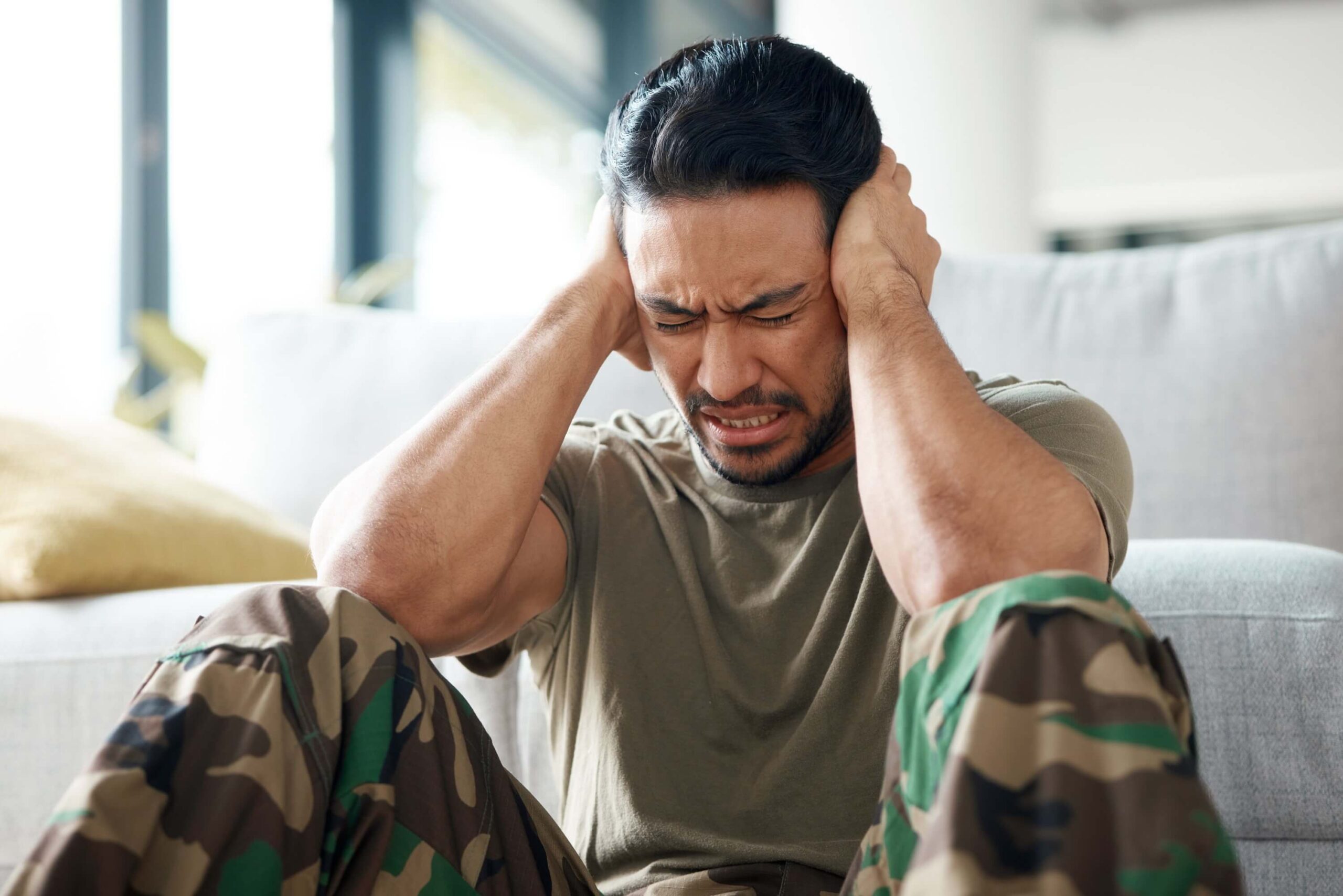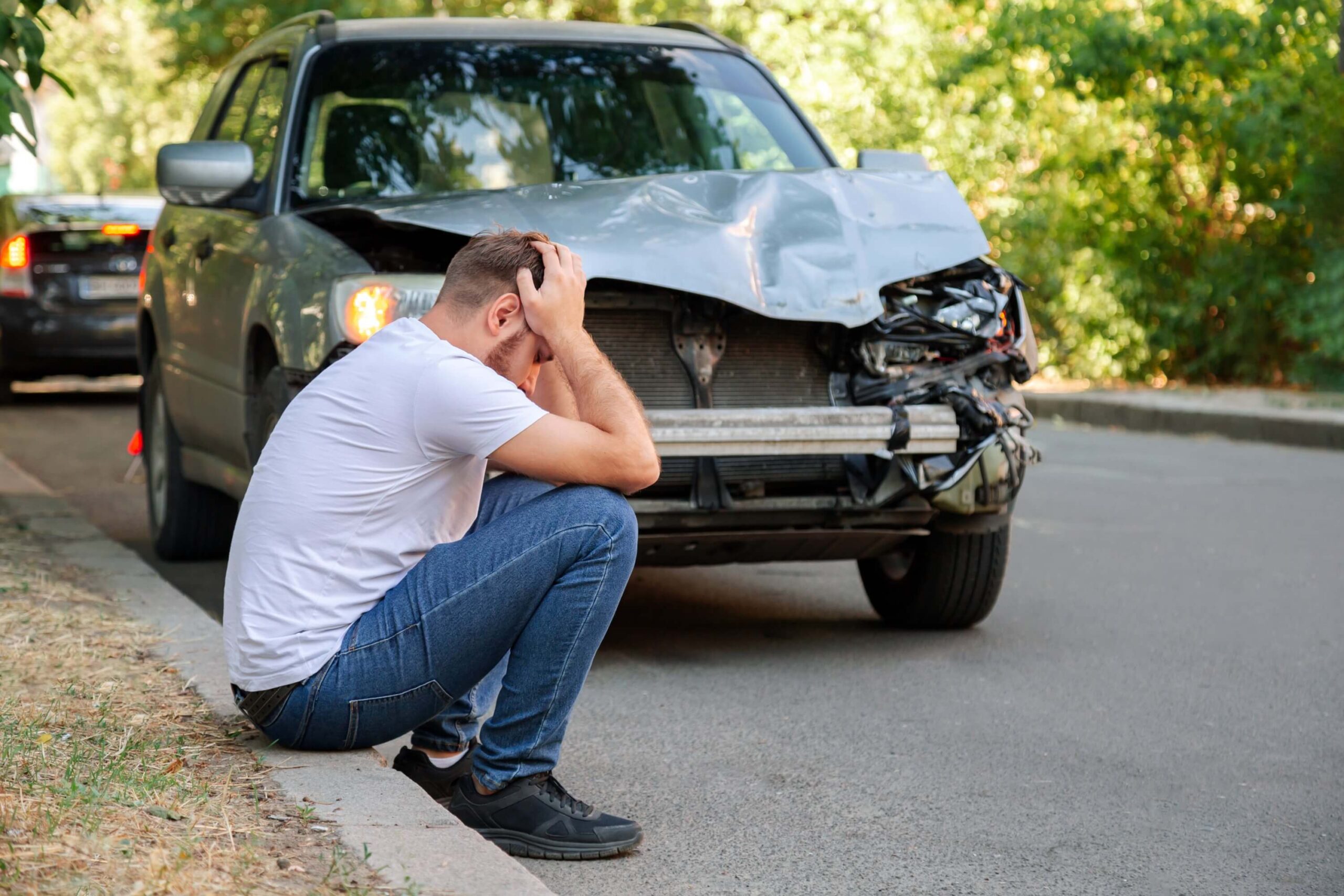The sudden impact of a car accident can leave you with much more than physical injuries. You may have a fear of driving after the accident that lasts even longer than it takes for your injuries to heal. This can happen even to seasoned drivers, and while it tends to happen to a driver after a crash, a passenger can also experience upsetting feelings of anxiety.
Anxiety about driving after a car crash is common. If you’re nervous about driving after your collision, you’re not alone. This can happen to drivers who have years of experience on the road and are suddenly grappling with intense fear about driving or even getting into a car again.
Brown & Gessell is a personal injury law firm that advocates for the legal rights of victims of car accidents. In this blog, we discuss the emotional impacts of car accidents, the importance of psychological treatment, and how a Stockton car accident lawyer from our firm can help you move forward from this traumatic event.
Understanding the Emotional Impact of Car Accidents
Suffering from anxiety driving after a car crash is understandable. Car accidents are sudden, traumatic, and violent. They can instantly upend your life with serious injuries or even cause one of your passengers to lose their life. Even if no one in your vehicle was harmed, you may have witnessed the fatality of another driver, which can have a devastating mental impact.
Additionally, you may have painful injuries that could result in permanent impacts on your life. You may be unable to walk again or suffer other injuries that require an adjustment in your life. When someone else causes your accident, you may also be angry that your life has changed drastically and you’re now stuck with financial losses. Worst of all, you may be terrified about driving after this event.
If you’re nervous about driving again after a collision, you should let your doctor know so they can give you a referral to a mental health specialist who can provide the treatment you need. Living in fear of anything can negatively impact your life and when you’re afraid of driving, it can make life even more of a challenge since it is something most people need to do to get to work, run errands, or transport their kids.
Many car accident victims suffer these emotional impacts that can arise days, weeks, or even months after the accident occurred. The most common psychological impact is known as vehophobia, which is a form of post-traumatic stress disorder (PTSD).
What Is Vehophobia and How Does It Impact Car Accident Victims?
Fear of driving after an accident is known as vehophobia. It can range in intensity from person to person. Some people with this phobia will avoid driving on certain roads while others will avoid driving altogether after a crash.
Some people that suffer from vehophobia may get extremely anxious even as a passenger in a vehicle. Vehophobia can disrupt your life, causing you to seek ways to avoid experiencing this stress.
While vehophobia happens to many people after a collision, it can also happen to someone who has only witnessed this traumatizing event. This phobia is usually spurred by PTSD, becoming more specific in nature to the point that it causes extreme anxiety around vehicles.
Some causes of vehophobia range from being fearful of death after surviving a severe car crash, losing a loved one in an accident, being a victim of road rage, or driving in intensely dangerous conditions.
Spotting the Symptoms: What Victims Experience with Vehophobia
If you have fear of driving after an accident, it is important to have your symptoms evaluated to get the treatment you need. You may have vehophobia if you avoid any activities that require you to drive or if it disrupts your ability to complete typical daily tasks.
The symptoms can vary widely from one individual to another. This is why you are encouraged to get the treatment you need to help you deal with the debilitating emotional burden caused by someone else’s negligent driving.
Generally, if you experience intense bouts of anxiety when you think about driving or suffer panic attacks when you get into a car whether you’re the driver or passenger, you should not delay getting help. Vehophobia will not get better on its own and ignoring the symptoms will prolong your suffering.
Other symptoms include avoiding roads that are considered dangerous or avoiding certain driving situations such as driving at night or during rush hour, anxiety, tension, and physical symptoms that include trembling, sweating, and dizziness.
A diagnosis will be required if you plan to seek compensation for the psychological impact the other driver caused you to suffer after the accident. Mental health professionals make a diagnosis by looking for irrational and out of proportion anxiety that has symptoms that last for at least six months.
Practical Tips for Overcoming the Fear of Driving
Overcoming the fear of driving, especially after experiencing a car accident or another traumatic event, can be daunting, but it is achievable with the right approach. For individuals dealing with post-traumatic stress disorder (PTSD) or anxiety disorders, it’s important to take gradual steps toward regaining confidence behind the wheel. Start by practicing in a safe, controlled environment, such as an empty parking lot, and use relaxation techniques like deep breathing to manage stress. Seeking professional help, such as therapy or counseling, can also provide strategies to process trauma and reduce the emotional impact. Remember, patience and persistence are key to overcoming fear and reclaiming your independence.
It is vital that you seek treatment to improve the quality of your life. Additionally, you should document any treatment you receive as you can be compensated for it as part of your non-economic damages, which is where mental trauma would be classified. Here are some practical tips to help with your mental health after a car accident:
Therapy Methods
When you seek treatment for your fear of driving, there are various therapy options your doctor can recommend. Cognitive behavioral therapy (CBT) works to help you recognize and identify your negative thought and behavior patterns while modifying them to reduce your anxiety. With this therapy method, you’ll find the source of your fear, combat irrational thoughts, and learn ways to cope with it.
Exposure therapy may be another option. This therapy works by gradually exposing you to your fear of driving to desensitize you to it. It is intended to help you manage anxiety by slowly building up your tolerance. Additionally, you may want to try hypnotherapy, especially alongside those other therapy methods to help you work through the feelings you have in a relaxed state of mind.
Medication
Your doctor may prescribe medication to help you manage the overwhelming symptoms of vehophobia. Anti-anxiety medications, antidepressants, and sedatives can allow you to relax, though they might have side effects, such as drowsiness, and they can be habit-forming.
You may also be prescribed beta-blockers to curb the stimulation of adrenaline. This can help reduce shaking, an elevated heart rate, and high blood pressure.
Relaxation Techniques
Therapists can also teach you relaxation techniques. These include deep breathing and meditation, which can help you handle the anxiety you are experiencing after your accident.
Support Groups
One of the biggest issues with a phobia of driving is that it can be incredibly isolating. Even with family, friends, and other loved ones around, it may be hard to rely on them for support if they have not experienced what you’re going through. In support groups, you will be with other people who have a fear of driving after an accident. These groups provide safe spaces for you to share your experience and get support from others who have been in similar circumstances.
Defensive Driving Courses
Along with these other ways to overcome the fear of driving, taking back control of your life is also encouraged. You can take a defensive driving course to learn skills and strategies to help you feel more in control and confident on the road.
Steps to Overcome Anxiety About Driving After a Car Crash
If you have been in a car accident, the fear of driving could take over your life. You can take action by taking the right steps to overcome anxiety. It all starts with knowing what to do after an accident.
While on the scene, call the police and get the help you need. Check for injuries and be sure to get medical treatment, even if you think you’re not hurt. Performing these actions is essential as they can help you recover the costs of your medical bills associated with treatments for physical injuries and their mental impacts.
Taking photos and videos and getting witness contact information is also important; however, if you are upset or too seriously injured, you may not think about taking this step. At this point, you should focus on your health and recovery. When you seek medical care, be sure to tell your doctor how you are feeling. You should keep a personal journal, which can help pinpoint issues that will need psychological treatment.
Ultimately, the best thing you can do to get over anxious driving after a car crash is to contact a car accident lawyer from Brown & Gessel. With an attorney advocating for you, you will have someone handling the investigation, the paperwork, the evidence, and the negotiations for your settlement. This allows you to focus on getting treatment for your physical and mental trauma.
When your injuries are serious and are causing you to suffer intense anxiety, you must not delay getting the help and care you need. Brown & Gessell is here for victims of car accidents. We can help direct you to mental health professionals who can help you work through your fear of driving after an accident while we work to get justice and the financial recovery you deserve.



